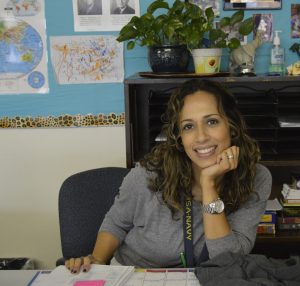Explore SEL: New Online Tool Explains Social-Emotional Learning Concepts [web resource]
 Explore SEL from Harvard University’s Graduate School of Education is designed as a navigator for the field of social and emotional learning. Explore SEL provides information and tools that summarize and connect the major frameworks and skills in the field to support transparency and informed decision-making.
Explore SEL from Harvard University’s Graduate School of Education is designed as a navigator for the field of social and emotional learning. Explore SEL provides information and tools that summarize and connect the major frameworks and skills in the field to support transparency and informed decision-making.
What is SEL?
Social and emotional learning (SEL) has often been used as an umbrella term to represent a wide array of non-academic skills that individuals need in order to set goals, manage behavior, build relationships, and process and remember information. These skills and competencies develop across our lives and are essential to success in school, work, home, and community. Generally speaking, this set of skills can be organized into three interrelated areas: cognitive, social, and emotional. Importantly, these skills and competencies develop and are in dynamic interaction with attitudes, beliefs, and mindsets as well as character and values, all of which are fundamentally tied to characteristics of settings.
How is SEL Complex?
Throughout its history, the field of social and emotional learning (SEL) has been defined or characterized in a variety of ways. In some respects, the term SEL serves as an umbrella for many subfields with which many educators, researchers, and policy-makers are familiar (e.g., bullying prevention, civic and character education and development, conflict resolution, social skills training, life skills, “soft” or “non-cognitive” skills, 21st century skills). However, discussion of this broad non-academic domain lacks clarity about what we mean and is beset by dilemmas about how best to measure and promote skills in this area. Underlying this challenge, and in some ways compounding it, is the fact that the field more generally is structured around a large number of organizational systems or frameworks that often use different or even conflicting terminology to talk about a similar set of skills.
Why is this a problem?
The complex and conflicting terminology used in the field can make it difficult to sort through and compare all the information out there to determine which approach works best for you. This lack of clarity can be both overwhelming and confusing. Without a way to make sense of the words, it becomes easy to misinterpret, over-generalize, or overlook the science that links evidence to strategies, and strategies to measurement and evaluation. When this happens, the links that connect different points along the research-to-practice cycle become lost or obscured, and the cycle breaks down.
How can this site help?
The tools and resources on this site support exploring, connecting, and comparing SEL and non-academic frameworks and skills to build a broader and deeper understanding of SEL and related fields, to grow clarity and transparency, and to enable users to select a framework to guide their SEL work, and much more.
Explore SEL includes the following interactive tools:
● Compare Domains: See which domains, or broad skill areas common to the field of SEL, are emphasized in different frameworks; see all frameworks at the same time and identify broad trends in the field;
● Compare Frameworks: See where skills, competencies, behaviors in one framework relate to those in other frameworks; select any two frameworks from the database and compare them side by side;
● Compare Terms: See where specific skills like conflict resolution, attention, empathy, self-efficacy and critical thinking are included across all the frameworks in the database; select any skill(s) and identify its prevalence; and
● Thesaurus: See related terms, regardless of terminology and research tradition or discipline (whether the term is common to the study of early childhood vs. adolescent and youth development, or SEL vs. character education, etc.); select any skill or term in the database and see a list of related terms in order of similarity.
Ultimately, Explore SEL will provide education decisionmakers with a way to sort through frameworks and terminology to make sense of existing information, allowing them to better align strategies and goals to achieve real impact.
Source: Harvard University Graduate School of Education | Explore SEL, http://exploresel.gse.harvard.edu | Copyright © 2019 The President and Fellows of Harvard College
CHC offers free community education sessions for educators. Join us to learn practical teaching strategies you can use in your classroom to help more kids reach their promise and potential. Educator sessions are led by experienced educator/clinician teams from Sand Hill School and CHC.





